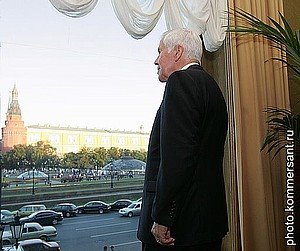
On Tuesday, head of the U.S. Senate Committee on International Affairs Richard Lugar accused Moscow of abusing its energy capacity and using its energy resources for political ends.
He placed Russia in the same category as such countries as Iran and Venezuela, which use energy blackmail as an instrument of foreign policy.
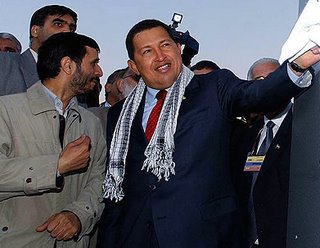
The Lugar Threat
The new charges against Russia were heard on Tuesday in West Lafayette, Indiana, at the so-called energy summit held under the patronage of Perdue University and Sen. Lugar. Major figures on the energy market and eminent experts on energy were present.
In his list of threats to U.S. national energy security, Lugar listed “hostile regimes, from Venezuela to Iran and Russia” neat the top, saying that they consciously use energy levers to pressure their neighbors.
“We are used to thinking in terms of conventional warfare,” Lugar said, “but now energy is becoming the preferred weapon in the hands of those who have it.”
Lugar called on U.S. authorities to develop a new national policy for energy resources to escape to avoid the “geopolitical threat from oil-rich regimes.”
The money those receive from the sales of energy resources feeds corruption, Lugar said.
...the petrodollars are spend on the support of international terrorism.

Rice University researcher Emmy Meyers- Jaff. “Bolivia, Venezuela and the Middle East are unstable regions,” she said. “And then there is Russia, where oil fields are being taken away from companies that have legally acquired the rights to produce oil.
So remember, when you buy a gas-guzzling Hummer, you are voluntarily putting yourself in their hands,” she said.
Protection from Lugar
A symmetrical response to Lugar's attack has already come from Moscow. Chairman of the Federation Council Committee on Foreign Affairs Mikhail Margelov jumped into the fray.
He called Lugar's statements “unmotivated Russophobia.” “Richard Lugar is using energy as a pretext to foist American petropolitical complexes onto Russia,”

Margelov chided the U.S. for urging the countries of Central Asia to build oil and gas pipelines that bypassed Russia. He was most likely thinking about the recently launched Baku-Tbilisi-Ceyhan line, which the U.S. had lobbied for since the early 1990s.
In the third week of August, Lugar headed a delegation of U.S. congressmen that followed the route of the Baku-Tbilisi-Ceyhan pipeline, visiting Azerbaijan, Georgia and Turkey, as well as Kazakhstan, whose oil should soon begin to flow through the pipeline.
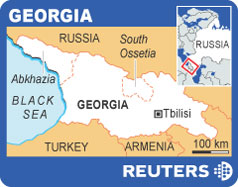
It is noteworthy also that, when he was visiting Tbilisi, Lugar became the first American politician to express support for Georgia's demand that Russia peacekeepers be withdrawn from Abkhazia and South Ossetia.
Shortly after Lugar's visit, the powerful U.S. senator John McCain visited Georgia, with a trip to South Ossetia, and he echoed Lugar's support for the withdrawal of Russian peacekeepers.
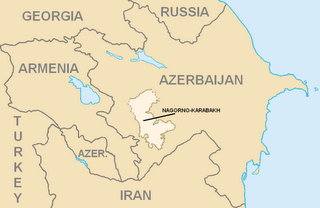
In the Caspian region, a special force, called the Caspian guard, is already being formed. Furthermore, they plan to set up integrated over the air and sea borders of Azerbaijan and Kazakhstan.
U.S. military expenditures in the Middle East connected with oil reach $50 billion a year, but we have no guarantee that even our armed forces can prevent an energy catastrophe,” he said.

Now that oil is flowing in the pipeline, the West will not take any chances and will search for ways to settle the conflicts in Nagorny Karabakh, as well as Abkhazia and South Ossetia.
Uniting around Lugar
Ariel Cohen, senior analysts at the Heritage Foundation, told Kommersant that Lugar's statements the widening front of supporters of a harsher policy toward Russia. Cohen included congressmen John McCain and Tom Lantos in that cohort. In Cohen's opinion, Lugar's joining the ranks is bad news for Moscow because of his closeness to U.S. Secretary of State Condoleezza Rice.
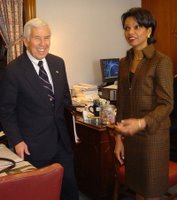
Another Kommersant source tied Lugar's speech to the introduction of a document on the Senate on sanctions against French and Russian companies that do business with Iran.
No comments:
Post a Comment